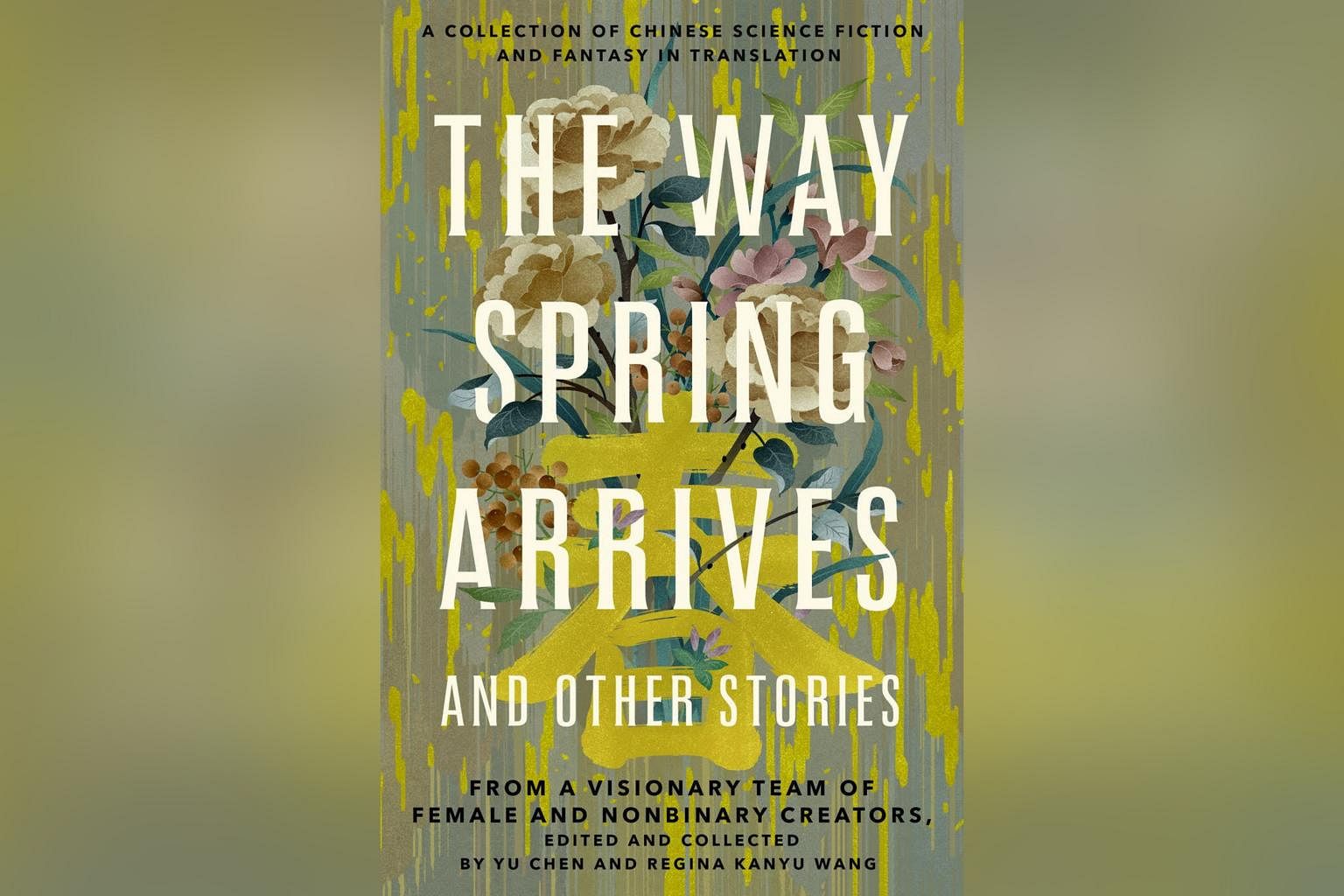Book review: Tasting menu of Chinese sci-fi, fantasy by female, non-binary authors
Sign up now: Get ST's newsletters delivered to your inbox

While the stories are a mixed bag, the book is a handy introduction to Chinese female or non-binary writers in the field.
PHOTO: TORDOTCOM PUBLISHING
Follow topic:
The Way Spring Arrives And Other Stories
Edited and collected by Yu Chen and Regina Kanyu Wang
Fiction/Tor.com/Hardcover/385 pages/$46.95/Buy here
3 out of 5
Fiction/Tor.com/Hardcover/385 pages/$46.95/Buy here
3 out of 5
In China, Internet publishing platforms have lowered barriers of entry for female authors, some of whom have won a huge following online and even had their works turned into popular drama serials.
Fantasy drama The Untamed (2020) and historical drama Nirvana In Fire (2015), for instance, were both adapted from online novels by female authors.
In this new collection, you can sample, in English translation, fantasy stories written by female Chinese authors as well as those who identify as non-binary.
Chinese science-fiction stories, which have drawn attention in the English-language world thanks to the likes of Chinese writer Liu Cixin and his regular translator Ken Liu, himself an award-winning author, are also part of the offerings here.
The collection's fantasy stories, which reference Chinese mythology and traditional culture, are more memorable, however, than the ones featuring hard science.
One tale that especially sticks in the mind is Dragonslayers, a visceral and chilling story involving body modifications reminiscent of David Cronenberg films.
The story disorients readers from the get-go by pulling the rug out from under their feet: the "dragon" in the story is not in fact of the variety seen in Chinese mythology or even Disney animation.
The 17 stories here go as far back as 2002, in the case of Baby, I Love You, a Black Mirroresque take on the implications of materialism and technology in Chinese society.
Some of the fantasy tales, with their talk of Taoist cultivation and green snake and fox spirits, hark back to 1980s Hong Kong movies like A Chinese Ghost Story.
The anthology does feel like a tasting menu. After the heavy flavours of the macabre tales, you can lighten the palette with the more whimsical stories, such as the one about stars that fall out of the sky and are kept like pets; or another about time-travel, a mystique diner and taro snacks.
However, the charm of the somewhat mechanical title story, The Way Spring Arrives, is lost on this reviewer. Regrettably, the cover features flowers and the Chinese word for spring, which makes the book look at first glance like a romance collection.

Like the authors of the tales, the translators are also female or non-binary. One of them is Singapore author Judith Huang, who translates an allegorical tale about a woman who carries a corpse everywhere - though this tale goes nowhere.
While the stories are a mixed bag, this book is a handy introduction to notable Chinese female or non-binary writers in the field of SFF (sci-fi and fantasy) as well as an useful resource for those interested in translation.
It offers five essays, including one that questions why "quiet" in English gets translated as "feminine quietness" in Chinese, as seen in the Chinese subtitles of Disney live-action movie Mulan.
Another essay examines gender in Chinese sci-fi, noting that the "question of gender in contemporary Chinese science fiction is as thorny as it is elsewhere," referring to other genres.
Certainly, while the anthology's inclusive ethos is laudable, it is hard to pin down what exactly distinguishes stories by female or non-binary writers from those by male authors elsewhere.
If you like this, read: Broken Stars: Contemporary Chinese Science Fiction In Translation, edited and translated by Ken Liu (Head of Zeus, 2019, $18.95, buy here, borrow here). This anthology of Chinese speculative short stories, which follows a similar 2016 collection titled Invisible Planets, features works by big names like Liu Cixin, Chen Qiufan and Hao Jingfang. It is also a helpful guide to sci-fi in China, with essays that trace its development.
This article contains affiliate links. If you buy through these links, we may earn a small commission.

